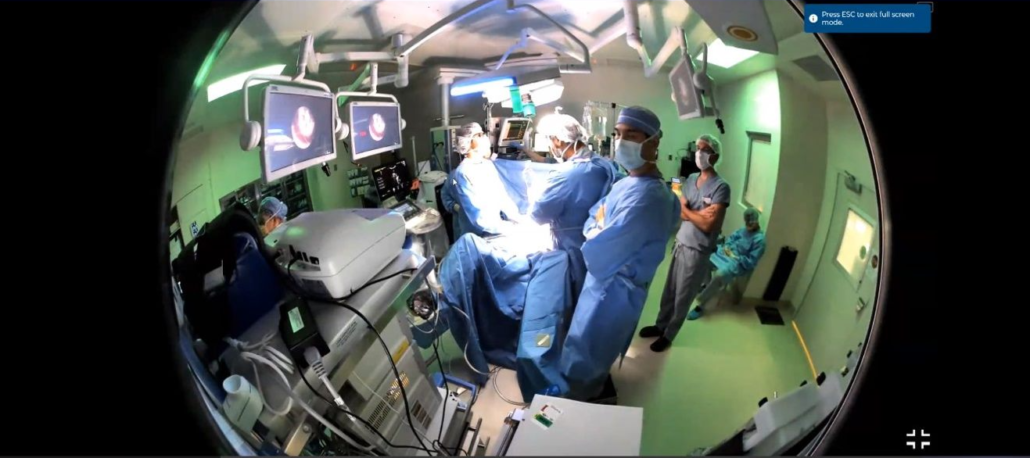Recently, a team of fetal surgeons from Germany reached out to Texas Children’s to request training in the hospital’s fetoscopic approach. Several options were considered and a telemedicine approach was developed. In partnership with Storz, a multinational endoscope manufacturer, a secure real-time video connection was established between the operating room at Texas Children’s Pavilion for Women in Houston and a conference room in Germany.
A sophisticated Storz robot with four separate cameras allowed full visual and verbal communication between the team performing the surgery and the team in Germany. A split screen showed real-time ultrasound images, an overall view of the operating room, an overhead view of the surgeon’s hands and the view from the endoscope inside the mother’s uterus. This was the first international broadcast of a fetoscopic spina bifida repair. The surgeons in Marburg were able to take notes, ask questions during and after the surgery, and were able to fully understand the procedure itself, as well as the team dynamic required. The team in Germany will continue their training on simulation models with virtual help from Texas Children’s as they progress toward their first case.
Please find below and attached a news release about this first-ever livestream of a fetoscopic spina bifida repair surgery from Texas Children’s to an international location. You will also find below a link to screenshots of the images the team in Germany was able to see during the surgery as well as a video.
Link to images: https://texaschildrens-my.sharepoint.com/:f:/g/personal/vxjavor_texaschildrens_org/EqKLIr0-_EZEor_psHDQLRMB985dbaG6kj6pKeo_k1cl7w?e=dM2hzU
